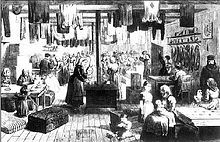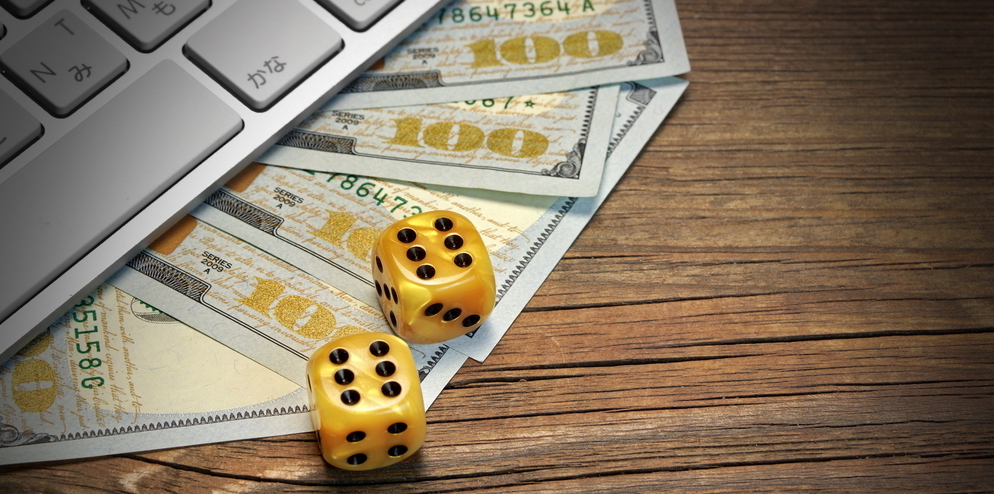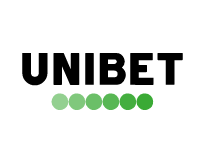When Did Pennsylvania Legalize Gambling
- When Did Pennsylvania Legalize Gambling Legalization
- When Did Pennsylvania Legalize Gambling Legislation
The Pennsylvania gambling expansion law passed largely because the state desperately needed a new source of tax revenue. One of the biggest sources of that revenue was upfront licensing fees for all the new types of gambling.
Even with the potential for big returns, the first state budget after expansion only expected $100 million from online gambling. That is a figure Pennsylvania surpassed after the first mini-casino auction.
Gambling streams are now blossoming in the Commonwealth, bringing in significant revenue for the state and local entities. How much so far?
Last updated: Feb. 20, 2021
How does that number break down? Let’s look at how much each category brought in:
Pennsylvania passed a bill regulating both sports betting and online casinos. A number of casinos now offer retail sports betting, with online betting apps launching on May 31, 2019. All of the major bases are covered in terms of markets, ranging from the major professional leagues all.
Act 71 was also known as the Pennsylvania Horse Race Development and Gaming Act, which brought slot machines and casino gambling to the state. Additionally, the Act did three major things that laid the groundwork for gambling within the state: established the Pennsylvania Gaming Control Board, legalized casinos, and legalized racetracks. PGRI re-posted an article released by the Competitive Enterprise Institute on its blog detailing the successful legalization of online gambling in Pennsylvania. This past Monday, October 30, Pennsylvania Governor Tom Wolf signed a bill legalizing Internet gambling throughout the state. The move makes the Keystone State the fourth in the nation. Gambling and lottery winnings is a separate class of income under Pennsylvania personal income tax law. Between July 21, 1983 and Dec. 31, 2015, all prizes of the Pennsylvania Lottery were excluded from this class of income. As a result of Act 84 of 2016, cash prizes of the Pennsylvania Lottery that are paid on.
Sports betting revenue starts rolling in
Sports betting in PA started out with retail only. Since the addition of online sportsbooks, revenue has soared. The majority of sports wagering in PA now happens online and the Pennsylvania market is third only behind New Jersey and Nevada in terms of volume of monthly wagers.
Consequently, the state’s tax revenue has experienced large gains since online betting was added to the mix.
Here is a look at the tax revenue (state and local) from sports betting so far:
January 2021: $12,229,342
December 2020: $12,261,434
November 2020: $13,446,089
October 2020: $13,239,693
September 2020: $2,257,158
August 2020: $6,578,667
July 2020: $2,933,093
June 2020: $2,397,657
May 2020: $1,738,436
April 2020: $1,038,049
March 2020: $2,480,132
February 2020: $1,700,011
January 2020: $8,222,829
December 2019: $4,094,893
November 2019: $5,299,449
October 2019: $5,381,370
September 2019: $5,062,216
August 2019: $2,201,406
July 2019: $1,026,769
June 2019: $979,302
May 2019: $1,030,267
April 2019: $1,519,733
March 2019: $1,986,962
February 2019: $700,853.95
January 2019: $938,597.00
December 2018: $722,356.00
November 2018: $183,238.77
Online casino taxes now a PA revenue stream
With the launch of online casino sites, the state got another tax revenue stream. In 2020, online casino proved a vital revenue source for PA with land-based casinos and major sports affected by pandemic precautions and closures. With online slot revenue taxed 54%, the state gets even more than the site when it comes to profit.
Table games provide a good chunk as well, with a 16% taxation rate (same as online poker).
Here is a look at slot and table games breakdown by month:
January 2021
Slot tax: $27,544,289
Table games tax: $4,268,734
Total online casino tax: $31,813,023
December 2020
Slot tax: $24,973,249
Table games tax: $3,621,244
Total online casino tax: $28,594,493
November 2020
Slot tax: $21,272,654
Table games tax: $2,875,595
Total online casino tax: $24,148,249
October 2020
Slot tax: $21,788,756
Table games tax: $2,718,140
Total online casino tax: $24,506,896
September 2020
Slot tax: $21,565,077
Table games tax: $2,356,890
Total online casino tax: $23,921,967
August 2020
Slot tax: $21,400,525
Table games tax: $2,173,236
Total online casino tax: $23,573,761
July 2020
Slot tax: $21,300,706
Table games tax: $1,907,184
Total online casino tax: $23,207,890

June 2020
Slot tax: $19,858,788
Table games tax: $1,606,208
Total online casino tax: $21,464,996
May 2020
Slot tax: $21,259,600
Table games tax: $1,987,122
Total online casino tax: $23,246,722
April 2020
Slot tax: $14,755,476
Table games tax: $1,678,339
Total online casino tax: $16,433,816

March 2020
Slot tax: $6,669,348
Table games tax: $1,405,145
Total online casino tax: $8,074,493
February 2020
Slot tax: $5,202,349
Table games tax: $1,284,237
Total online casino tax: $6,486,586
January 2020
Slot tax: $3,883,784
Table games tax: $737,293
Total online casino tax: $4,621,067
December 2019
Slot tax: $3,008,116
Table games tax: $412,956
Total online casino tax: $3,421,072
November 2019
Slot tax: $2,750,645
Table games tax: $415,445
Total online casino tax: $3,166,090
October 2019
Slot tax: $2,147,692
Table games tax: $154,517
Total online casino tax: $2,302,209
September 2019
Slot tax: $1,746,962
Table games tax:$144,039
Total online casino tax: $1,891,001
August 2019
Slot tax: $1,643,397
Table games tax: $191,601
Total online casino tax: $1,835,058
July 2019
Slot tax: $279,564
Table games tax: $47,135
Total online casino tax: $326,700
Online poker joins online slots and table games
Mount Airy launched the first online poker room with PokerStars PA going live Nov. 5, 2019. So far, it is the only operator live in the state, though more operators are expected to join the market in the coming months.
Here is a look at revenue and tax revenue by month for online poker in PA, plus total tax revenue to date.
January 2021
Online poker revenue: $2,725,600
Online poker tax: $433,306
December 2020
Online poker revenue: $2,729,729
Online poker tax: $428,103
November 2020
Online poker revenue: $2,409,235
Online poker tax: $374,849
October 2020
Online poker revenue: $2,422,505
Online poker tax: $387,601
September 2020
Online poker revenue: $2,376,045
Online poker tax: $380,167
August 2020
Online poker revenue: $2,729,199
Online poker tax: $436,672
July 2020
Online poker revenue: $2,986,498
Online poker tax: $477,840
June 2020
Online poker revenue: $3,240,917
Online poker tax: $509,590
May 2020
Online poker revenue: $4,596,418
Online poker tax: $729,851
April 2020
Online poker revenue: $5,253,304
Online poker tax: $837,550
March 2020
Online poker revenue: $3,133,019
Online poker tax: $500,384
February 2020
Online poker revenue: $1,830,356
Online poker tax: $290,752
January 2020
Online poker revenue: $2,157,266
Online poker tax: $345,162
December 2019
Online poker revenue: $2,473,137
Online poker tax: $395,702
November 2019
Online poker revenue: $1,965,494
Online poker tax: $314,479
Mini-casino auction profits
| Parent Casino | Bid Amount | Location | Additional table games license? |
|---|---|---|---|
| Hollywood Casino | $50,100,000 | Yoe in York County | N/A |
| Stadium Casino LLC | $40,100,005 | Derry in Westmoreland County | Yes |
| Mount Airy Casino | $21,888,888.88 | New Castle in Lawrence County | N/A |
| Parx Casino | $8,111,000 | South Newton in Cumberland County | N/A |
| Hollywood Casino | $7,500,003 | West Cocalico Township in Lancaster County | N/A |
VGT tax revenue
When Did Pennsylvania Legalize Gambling Legalization
January 2021: $1,165,207
December 2020: $417,518
November 2020: $1,174,884
October 2020: $1,256,413
September 2020: $1,239,548
August 2020: $895,509
July 2020: $1,075,974
June 2020: $560,261
May 2020: $0
April 2020: $0
March 2020: $485,682
February 2020: $697,806
January 2020: $579,914
December 2019: $457,159
November 2019: $342,830
October 2019: $242,522
August/September 2019: $168,849
Lottery expansion nears $45 million in revenue in first year-plus
When Did Pennsylvania Legalize Gambling Legislation
PA Lottery was part of the gambling expansion bill as well. The laws allowed for the introduction of three new elements of lottery offerings. Those are:
- Virtual sports
Keno rolled out May 1, 2018, followed by online lottery games on May 22, 2018. Xpress Sports, the virtual sports element, went live in August.

Based on numbers provided by the PA Lottery in its annual fiscal reports, profits from each of the following game types from launch through July 2019 were as follows:
Online lottery: $32.96 million
Keno and virtuals: $11.62 million
Draw tickets such as Mega Millions and Powerball are now available for purchase online through the iLottery too, as of January 2020. In May, 2020 the PA lottery reported that online sales had crossed $1 billion since launching less than two years prior. Exact revenue figures for the fiscal year are forthcoming.
Daily fantasy sports revenue
While daily fantasy sports (DFS) was not explicitly illegal in Pennsylvania, the 2017 gambling expansion regulated the industry. With that regulation comes taxation and licensing fees.
Ten fantasy sports operators needed to each pay a $50,000 licensing fee. Their revenue is taxed at a rate of 15 percent. Here is a look at each month’s tax revenue from DFS as well as the total amount of tax revenue to date:
- January 2021: $436,273
- December 2020: $451,762
- November 2020: $452,259
- October 2020: $480,451
- September 2020: $485,124
- August 2020: $320,174
- July 2020: $138,861
- June 2020: $97,087
- May 2020: $47,826
- April 2020: $25,088
- March 2020: $108,591
- February 2020: $255,366
- January 2020: $309,716
- December 2019: $515,343
- November 2019: $447,174
- October 2019: $489,654
- September 2019: $439,357
- August 2019: $208,295
- July 2019: $186,730
- June 2019: $238,847
- May 2019: $270,458
- April 2019: $277,883
- March 2019: $245,226.70
- February 2019: $244,376.75
- January 2019: $317,475
- December 2018: $429,075.51
- November 2018: $486,174.15
- October 2018: $435,429.45
- September 2018: $320,057.10
- August 2018: $141,543.03
- July 2018: $131,727.75
- June 2018: $152,679.34
- May 2018: $199,755.94
Lady Luck Nemacolin lone sports betting holdout
In August 2018 Pennsylvania finally got its first official sports betting applicant. Penn Nationalfiled its petition, breaking the weeks of inactivity that had many worrying that nobody would bite.
A total of 12 of the 13 eligible casinos submitted applications for the $10 million license. The lone holdout is Lady Luck Nemacolin. Late in 2020, Penn National acquired a second $10 million sports betting license (for the forthcoming Hollywood Casino Morgantown property) to partner with the BetMGM online sportsbook.
There are currently 13 retail sportsbooks spread across the state (with Oaks now permanently closed), and more than ten online sports betting apps.
Interactive gaming petitions generate $94 million
The 90-day window for PA casinos to apply for $10 million comprehensive interactive gaming petitions opened in mid-May, 2019. For the first 85 days, there was no news — a panic set in that there might be few or no applicants.

In the end, though, a majority of the 13 casinos ponied up the fee, which allows them to offer online peer-to-peer games like poker, online slots, and online table games. The seven casinos who filed for petitions and received approval are:
Once the all-in-one license application period ended, PA casinos could still purchase a la ca carte licenses for each of the three categories. Presque Isle Downs owner Churchill Downs spent $8 million applying for online poker and online slots. In an unusual move, Mohegan Sun Pocono paid a $2 million premium to apply for all three licenses for $12 million.
Rivers Pittsburgh surprisingly rescinded its interactive application. Rush Street Gaming owns both Rivers casinos (and the SugarHouse brand), so the Rivers Philadelphia license supports online casino products for both venues. That opens up three more licenses, bringing the total to 10.
Stadium Casino rescinded its peer-to-peer application but retained its online slots and table games licenses so that it would pay $8 million in licensing fees.
Mohegan Sun Pocono informed PGCB that it would not seek to offer online poker either, so it too had to pay $8 million.
The Meadows and Lady Luck Nemacolin opted not to apply for any interactive gaming licenses. The Meadows is owned by Penn National, who already applied for a comprehensive license. Lady Luck Nemacolin is managed by Churchill Downs now, and defers to Presque Isle on the online gaming front.
Where does that leave these leftover licenses? The next step was to open up the applications to entities outside of Pennsylvania. The two applicants in that category were MGM Resorts and Golden Nugget Atlantic City.
MGM eventually applied as a full operator, partnering with Hollywood for online casino and Hollywood Morgantown for sports betting. They are also expected to launch online poker under BetMGM/partypoker brand. Golden Nugget only applied for online casino and sports betting.
Law generates $51 million for PA in a matter of hours
In 2017, the state received two payments in the days immediately following the passage of the law. One was a $1 million payment from Valley Forge Casino to remove the amenity fee requirement on the Category 3 property. The other was a $50 million payment by Stadium Casino LLC for its Category 2 casino license. The group is in the process of building a casino in the Stadium Park area of Philadelphia.
In June of 2018, the Stadium Casino project paid the state an additional $24,750,000 for the right to offer table games at the property when it opens, bringing the total licensing brought in from the group to $74.75 million.
Other sources of revenue from the law include:
On Oct. 31, Valley Forge also took advantage of another change in the law. For $2.5 million, the resort casinos could up the number of slot machines on property. After a year of gaming revenue growth, the casino decided it was time to expand.
After nearly a year and a half of the law being in effect, Lady Luck Nemacolin elected to pay the $1 million to eliminate its $10 Category 3 amenity fee, leaving the state with no more casinos charging for entry.